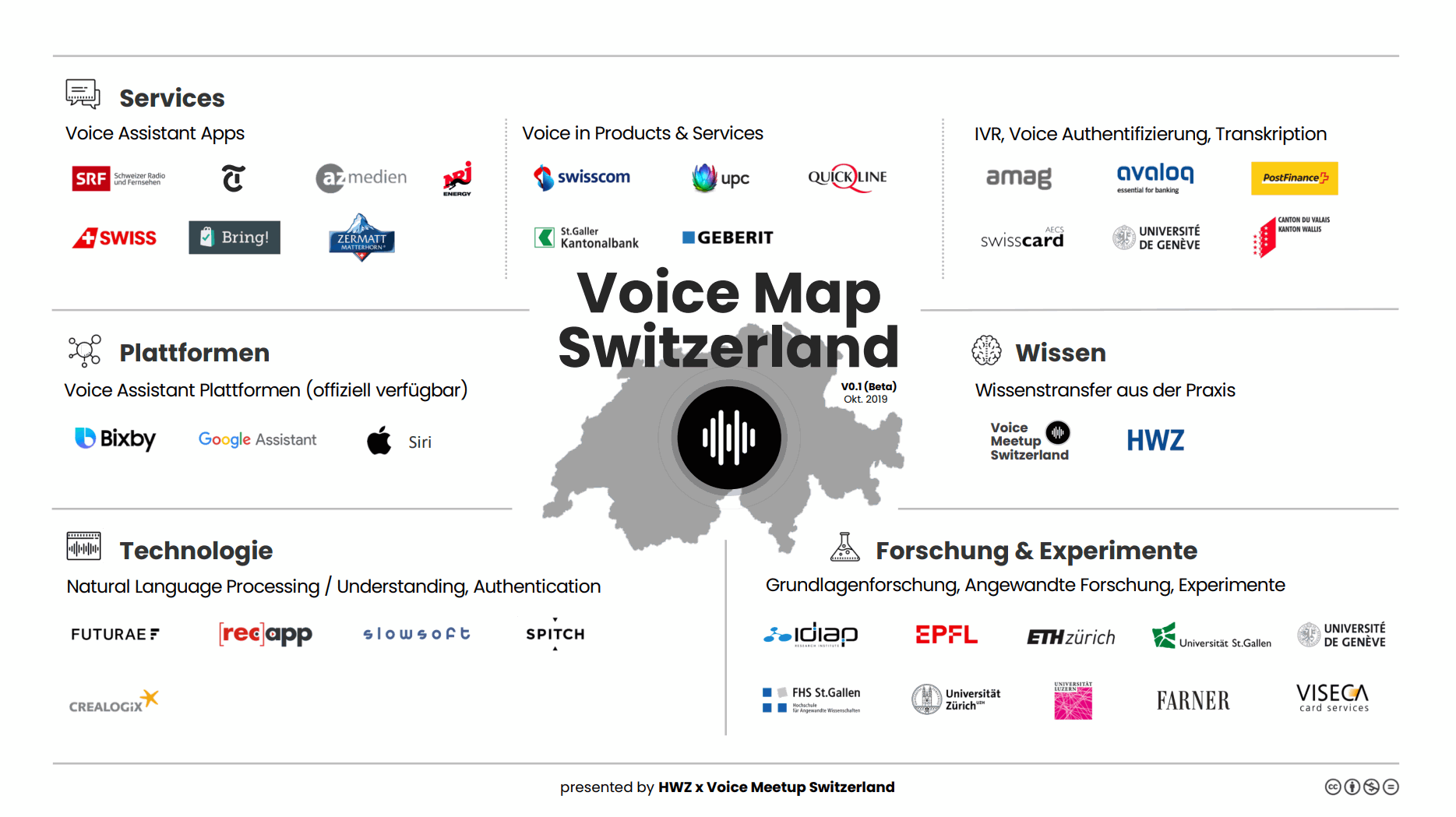Human and AI Art
Marisa Tschopp

Why it makes sense to experiment with Voice right now
The Voice First Barometer Switzerland is a representative survey conducted with over 1000 participants in Switzerland. It provides good insights into the Swiss voice landscape: How widespread is voice control and how much do the Swiss population like to speak with a device? Some insights from the survey:
The Voice First Barometer Switzerland is a good starting point for an intensive study of the characteristics of the Swiss voice user. Another important point is to understand what the current market looks like: Who is experimenting with voice? Who is researching the topic? Who is already offering solutions to their customers? Who builds voice user interfaces and which platforms are already available? These and other questions are answered by the Voice Map Switzerland. A must for anyone who wants to get to grips with the topic.

One of the companies shown on the graphic is recapp. This company has taken up a very special challenge, namely to teach the Computers Walliserdeutsch (special Swiss dialect). The Swiss dialect, and to what extent this is decisive for the use of voice, still offers endless material for discussion. Perhaps the first good solutions will come sooner and/or differently than expected. What is certain, however, is that there will be a lot of movement on the Swiss market in the coming years. The world will not change fundamentally, but every entrepreneur must be aware that voice is a new touchpoint that needs to be integrated into the customer journey creatively, alongside the Internet and such.
The continuing education course of the Lucerne Universities of Applied Sciences Voice User Interface Strategy, is the first course in Switzerland to deal with the topic in this intensity. It was important to bring international speakers aboard: From Google, who have been working on conversational design for 25 years, to Voice Architects from Germany, who in contrast to Switzerland, for example, already work very intensively with Alexa Skills. These are the key learnings from the pioneering course, in which the Research Department was involved both in teaching and as a participant:
If you want to stay up to date with Voice, the following references are recommended:
Learning & Informing:
International & Conferences:
People to follow:
Speaking instead of typing will be normal for many in a few years, although speaking and typing may be the more appropriate expression. Anyone who is now working on the subject of voice, setting the course, joining forces with others, is doing pioneering work. You must be aware of that. This means that the return on investment will certainly be a long time coming, projects will be launched and may get lost again in the archive. But pioneering work is never sunk costs, even if it is a (calculable) investment. The learning effects are available on different levels: Be it the understanding of one’s own data structures, to understand the needs of customers better, new or even at all. If you experiment with voice, you learn the opportunities and limits of a technology not only from books or from conferences, but by getting your hands dirty and developing a voice experience. For us as a research department, it is clear that we deal with these topics and experiment with them, develop Alexa skills and Google Actions to understand them and be ready for what is coming to us and our customers.
We thank the Lucerne University of Applied Sciences for the pleasant cooperation and for the opportunity to be part of the pioneer class of the advanced training course Voice User Interface Strategy. This article is the conclusion of the series on the topic of Voice User Interfaces, which highlights various topics in four parts:
These were written in the course of the continuing education course Voice User Interface Strategy of the Lucerne University of Applied Sciences and Arts. Contents reflect the opinion of the author.
Our experts will get in contact with you!

Marisa Tschopp

Marisa Tschopp

Marisa Tschopp

Marisa Tschopp
Our experts will get in contact with you!